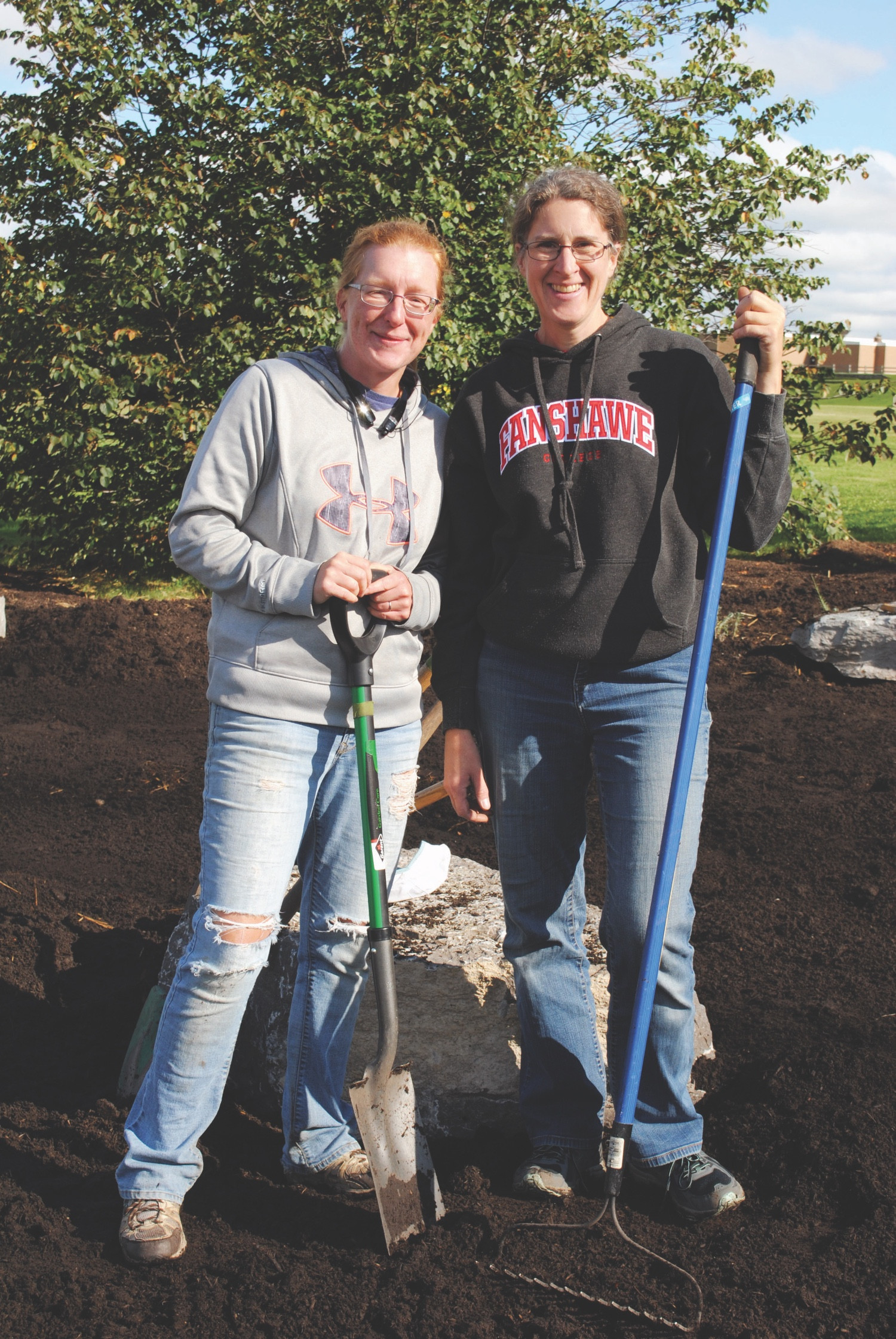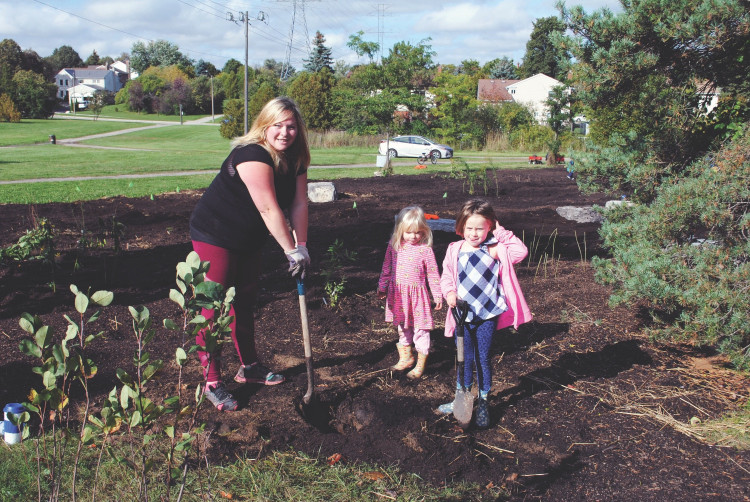

KITCHENER IS A BEE CITY
Forest Heights residents doing their part to help the environment by planting a pollinator patch
Forest Heights residents doing their part to help the environment by planting a pollinator patch
Meadowlane School Council chair Alyssa Vasey and her daughters Sage, 5, and Arya, 3, help dig the plot for plants at the Forest Heights Pollinator Patch. Photos by Helen Hall
For News Tips & Advertising call...
Kitchener East - 519-578-8228
Kitchener West - 519-394-0335
 by Helen Hall
by Helen HallKitchener Citizen
October 7, 2019
Organizers of a new pollinator patch in Forest Heights are hoping their efforts will inspire others to create pollinator patches across the city.
“There are so many patches of grass and unused circles on streets that are really just grass to cut,” said Amanda Farquhar, one of the organizers.
A pollinator garden is planted and designed with specific nectar and pollen producing plants, positioned in a way that attracts pollinating insects.
The Forest Heights Pollinator Patch came together pretty quickly. It is located behind Meadowlane Public School, close to the hydro path.
This patch was the idea of Giselle Carter, who attended a Waterloo Region Nature presentation on pollinator patches two years ago.
“I thought ‘I could do that’ - if I could find a good person to work with,” Carter said.
Farquhar had worked on an edible food hedge behind Meadowlane several years ago, so she seemed like the perfect partner.
The two applied for some grants and received $12,600 from the Region of Waterloo Environ-mental Improvement Grant and $6,935 from the City of Kitchener #Lovemyhood community grants. They work in collaboration with the Forest Heights
Community Association.
The pair was most surprised by the community building aspect of the project.
On the first working day at the patch in September, about 30 came out to volunteer.
“People we don’t even know were collecting plants for us,” Farquhar said.
The first job was to prepare the plot, which was previously grass, for the garden.
The group laid down cardboard, compost, straw and then soil - known as ‘lasagne’ gardening to create the patch.
Luckily, they had some donations.
Dirt Cheap donated the delivery fee for the materials. Dundee Nursery and Landscaping donated some trees and loaned the equipment to move the 240 cubic yards of compost and soil.
Eight Serviceberry bushes were donated by Benjamin Tree Farm and were planted around the perimeter of the patch.
The two organizers did research on what kind of plants were best to put in the patch.
Both the City of Kitchener and the Region of Waterloo have lists of good plants to use. Kitchener is a “Bee City.”
As a result, ninety percent of the plants they are using are native to this area.
“The benefit of native plants is that they are accustomed to the weather,” said Farquhar.
They also looked for plants that bloomed at different times of the year.
Next week, 400 plants will be delivered to the patch. Students from Meadowlane Public School and Driftwood Public School will help with the planting.
“We want to get as many kids as we can involved,” said Farquhar. “One of our goals is education.”
Once the patch is fully planted, it will require a couple of work days a year to clear out any dying plants or pull out weeds or invasive species that might take hold.
They are looking into some kind of irrigation system, like water barrels.
Carter said she finds herself in a “constant struggle” about the things she can, and can’t, change in her life to help the environment.
“I want to live my life in a way to take better care of the earth,” she said.

Amanda Farquhar (left) and Giselle Carter are the organizers of the Forest Heights Pollinator Patch.